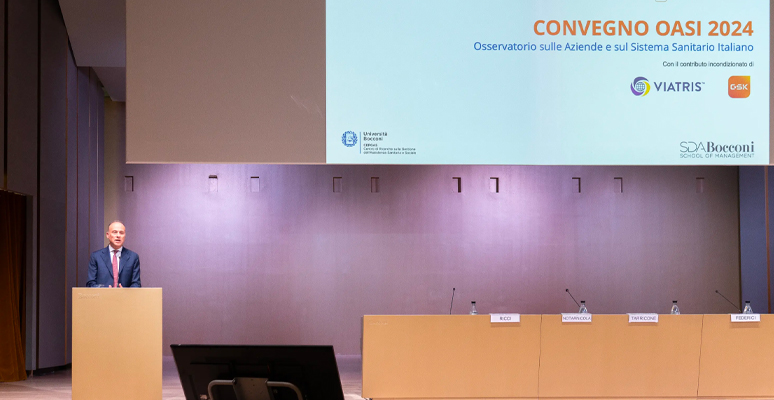
- Start date
- Duration
- Format
- Language
- 3 Mar 2025
- 5 days
- Blended
- Italian
Per aiutarti a trovare le soluzioni adeguate in un’ottica di lungo periodo nella gestione del punto di vendita di prodotti e servizi per la salute.
Demographic evolution makes an increase in demand for long-term care services in Italy inevitable. ISTAT data indicate that, in 2021, the over 65 population was 23% of the total, and the non-self-sufficient numbered 3,959,395 (almost a third of individuals in that age group). Projections for 2030 predict that the over-65s will be 30% of the population and that the non-self-sufficient will increase in proportion.
The 6th CERGAS SDA Bocconi – Essity Long-Term Care Monitor Report (in Italian), edited by Giovanni Fosti, Elisabetta Notarnicola, and Eleonora Perobelli, investigated the financial, HR, and service model sustainability of the sector in the medium to long-term through a survey of 29 of the 32 leading companies in the long-term care market that participate in the Monitor.
At the beginning of 2023, the financial situation of the entities interviewed was improving, with a 20.7% increase in the value of production compared to 2019 and an improvement in EBITDA. However, three factors mainly undermine financial sustainability:
In terms of HR and skills sustainability, the shortage of personnel continues to be a central issue for managers, with more marked shortages among those who only manage the social and healthcare supply chain (where 18% of doctors and nurses and 11% of OSS are missing) compared to those who also manage health services (e.g., acute care beds, long-term care, rehabilitation). The Report highlights some of the most recurring problems in the LTC sector: dissatisfied staff, high turnover (33% for healthcare staff and 25% for care staff), and difficulty in finding replacements, also due to applications not suited to the needs of long-term care providers.
The Report provides a snapshot of a sector in which service models evolve slowly. Although the current social context continually signals the need for holistic care, providers notice that the needs least addressed by the LTC sector are those of psychological support for the elderly and the family (with a score of 3.4 on a scale of 1 to 5). On the other hand, the ability of the services to provide excellent complex and basic assistance is confirmed (4.9 and 4.4 out of 5). For managers, care provided in LTC facilities and integrated home care are confirmed as strategic services, with scores of 4.86 and 4 out of 5, respectively. However, teleassistance and telemedicine services (2.76 out of 5) and support for family caregivers (2.4 out of 5) are not recognized as crucial and strategic. This makes it clear that while the use of technology is now widespread in some areas of elderly care, such as the management of medical records (score of 4.41 out of 5), it still struggles to emerge as a key tool for services, in the provision of therapies (2.86 out of 5), or for designing care paths with artificial intelligence (1.62 out of 5).
“The Report allows us to analyze the health of the healthcare sector, providing us with valuable information on its long-term sustainability. The need for a network of fundamental services such as psychological support for the elderly and for the family is certainly the most eloquent fact,” states Massimo Minaudo, CEO of Essity Italia, “and demonstrates how the long-term care sector needs a targeted coordination action, to respond in an increasingly effective manner to the constantly evolving needs of non-self-sufficient individuals.”
SDA Bocconi School of Management

Per aiutarti a trovare le soluzioni adeguate in un’ottica di lungo periodo nella gestione del punto di vendita di prodotti e servizi per la salute.


Acquire the managerial skills needed to play your organizational and managerial role effectively and govern change in the social care and healthcare system.

